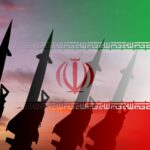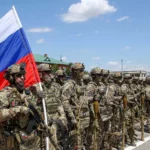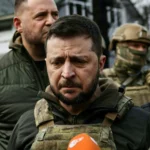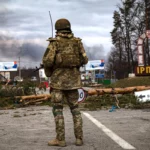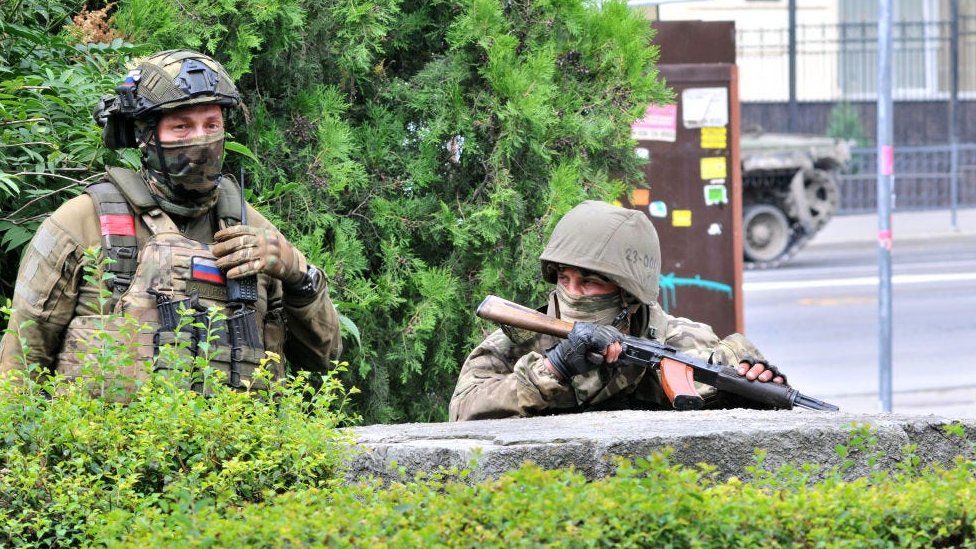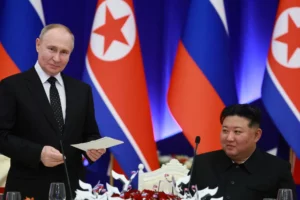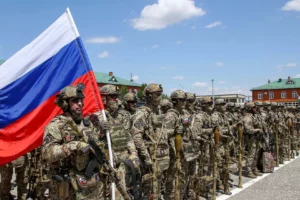A mercenary involved in an attempted coup against Russian President Vladimir Putin says he and his associates “had no idea” what was going on.
In just 24 hours, the leader of the Wagner group, Yevgeny Prigozhin, launched an uprising, sending troops into the southern city of Rostov, and then towards Moscow.
Wagner fighters rarely talk to the media, but the BBC Russian Service spoke to a junior commander at the center of the action.
Gleb (not his real name) previously fought for the symbolic city of Bakhmut in eastern Ukraine. When the rebellion began, he was vacationing with his unit in the barracks in the Russian-occupied Luhansk region.
Early on the morning of June 23, they received a call to join the Wagnerian column leaving Ukraine. The order came from a Wagner commander, whose name Gleb does not want to name for security reasons, but who acted on the orders of Prigozhin and the Wagner Command Council.
“This is a full deployment,” he was told. “We are building a column, moving forward.”
Gleb says they didn’t tell anyone where the column was heading, but he was surprised when he realized they were moving away from the front line.
According to him, the Wagner fighters met absolutely no resistance when they crossed the Russian border into the Rostov region.
“I didn’t see any border guards,” he recalls. “But the traffic police greeted us along the way.”
Channels closely associated with Wagner on messaging app Telegram later claimed that border guards at the Bugaevka checkpoint had laid down their arms when Wagner’s fighters arrived.
These channels shared a photograph purporting to be from the scene, showing two dozen unarmed men in camouflage uniforms.
On the approach to Rostov-on-Don, the militants were ordered to surround all the buildings of law enforcement agencies in the city and occupy a military airfield. Gleb’s unit was ordered to take control of the territorial offices of the Federal Security Service (FSB).
When they arrived at the building, it was completely locked and empty. They raised a drone overhead to check for signs of life.
Finally, after half an hour, the door opened and two people came out.
“They said: “Guys, let’s agree,” says Gleb. “I said, ‘What’s the deal about? This is our city.”
“So we just agreed that we would leave each other alone. From time to time they went out for a smoke.
Rostov journalists report a similar situation with many government buildings in and around the city. Wagner fighters will first circle them with drones, and then surround them. No one was let out, but couriers with food were allowed in.
No explanation
While all this was going on, the leader of Wagner, Prigozhin, was at the headquarters of the Southern Military District of the Russian Army, where he met with Deputy Minister of Defense of Russia, Lieutenant General Yunus-bek Yevkurov, and Deputy Chief of the General Staff, Lieutenant General Vladimir Alekseev.
Prigozhin demanded that Chief of the General Staff Valery Gerasimov and Defense Minister Sergei Shoigu be handed over.
At the time when Prigozhin was at his meeting, another column of Wagner fighters was moving.
Gleb confirms media reports that the column was run by Wagner founder Dmitry Utkin, a former special forces officer who is rarely seen in public.
According to him, this convoy was walking along the main highway towards Voronezh and, apparently, was heading to Moscow.
So did Gleb know the plan – what was Prigozhin going or going to do?
He scolds as he bluntly says he had no idea. “We learned what’s going on from Telegram, just like you.”
During the day, photographs of what is happening in Rostov spread around the world. People were surprised to see locals and even local journalists apparently smiling and chatting with some of the normally silent Wagner fighters occupying their city.
“They were former prisoners,” says Gleb, referring to the many serving prisoners or convicts drafted into Wagner last year. “No one told them to do it, no one cares about them.”
For accomplished fighters like Gleb, who were hired long before the war in Ukraine, the rules are much clearer.
He told the BBC that back in the spring, the high command told them that anyone who spoke to the media would be “annulled”, that is, killed. Several former Wagner fighters told us the same thing.
On the evening of June 24, one of his superiors contacted Gleb and, without any explanation, said that now he and his unit must return to the base in Luhansk.
Returning to the barracks, they followed the news on Telegram.
They read that a criminal case was initiated against Prigozhin, which was then dropped, and that he was supposed to move to Belarus.
They then read that the Wagner fighters would not be prosecuted for taking part in the mutiny because of their “military merit,” according to President Putin’s press secretary Dmitry Peskov.
For Gleb and his unit, their future is now unclear. They were told to stay in their barracks in Lugansk and wait for further orders.
According to him, their owners, the authorities of the so-called Luhansk People’s Republic, pro-Russian separatist fighters in eastern Ukraine, want to know more about their future plans and what will happen to their equipment and ammunition.
When asked why he does not leave Wagner, Gleb has a simple answer: “My contract has not yet expired.”
Source: BBC

